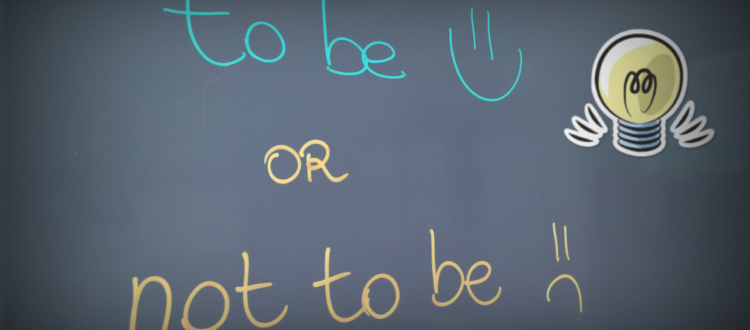Il “to-infinitive”: guida all’uso corretto dell’infinito
Il “to-infinitive”: guida all’uso corretto dell’infinito
il “to-infinitive” si esprime con “ to + verbo” (to + be) nella forma affermativa e con “not + to + verbo” (not + to + be) nella forma negativa.
In genere, quando si parla di infinito nella grammatica inglese, si intende il “to-infinitive”, ma esistono anche il “perfect infinitive” (to have done), il “passive infinitive”(to be done), il”progressive infinitive”(to be doing) e il “perfect progressive infinitive” (to have been doing), sebbene meno frequenti. Parleremo anche di questi casi, in un altro post.
Example: “To be or not to be: that is the question” (Hamlet, W. Shakespeare)
La “base form” è la forma senza il “to”, ovvero (stando all’esempio) “be”.
La “base-form” dell’infinito è quella data dal dizionario:
Quando si usa il “to-infinitive?
Dopo un gruppo di verbi, come:
- 1) Want – Ex: “I want to take the first flight to Rome in the morning”
- 2) Decide – Ex : “We’ve decided to launch a new website in September”
- 3) Need – Ex: “Jim needs to take some time off”
- 4) Teach – Ex: “I’m teaching him to drive a motorbike”
Altri verbi che precedono sempre il il “to-infinitive”sono:
|
Afford |
Swear |
Offer |
Pretend |
Hope |
|
Consent |
Decide |
Prove |
Demand |
Care |
|
Bother |
Happen |
Tend |
Strive |
Learn |
|
Claim |
Seem |
Manage |
Arrange |
Hesitate |
|
Seek |
Volunteer |
Vow |
Undertake |
Long |
|
Trouble |
Fail |
Hasten |
Prepare |
Condescent |
|
Have |
Guarantee |
Threaten |
Aim |
Refuse |
|
Proceed |
Resolve |
Promise |
propose |
|
Per esprimere uno scopo/proposito
- 5) “Click on the icon to open the folder”
- 6) “I’m going to the shop to buy some teabags”
- 7)”It takes twenty minutes to drive to Decimomannu”
- 8) “We’re too young to die” (Jamiroquai)
Dopo aggettivi collegati a un’opinione o un’attitudine
- 9) It’s important to read as much English as possible
- 10) It was lovely to speak with you this morning
- 11) I’m keen to learn a new language
Dopo i pronomi indeterminati come somebody, something, anything, nowhere
- 12) “Everybody needs somebody to love”
- 13)”Is there anything to eat in the fridge?”
- 14) “I don’t have anything more to say on the matter”
- 15) “The train was packed full and we had nowhere to sit down.”
Dopo alcuni nomi o “noun-phrases”
Una “noun-phrase” è una parola o un insieme di parole contenenti un nome che può fungere da soggetto, oggetto o complemento preceduto da una preposizione.
- 16) It’s a good idea to switch off your data connection if you go abroad”
- 17) “You’ll have a chance to ask questions at the end of the talk”
- 18) “It’s time to think about a change of career
- Nota 1
Come avrai notato, in molti esempi riportati il “to-infinitive” descrive un’azione che deve ancora avvenire, che è forse ancora solo un’idea o un desiderio embrionale nella mente di chi parla nel momento in cui viene pronunciata la frase. Ha un tratto provvisorio, quasi come una congettura. Qualcosa che può perfino non accadere mai. Ciò che ci interessa è l’idea dell’azione, non il suo effettivo svolgimento. Questo punto sarà più chiaro quando parleremo della –ing form nel prossimo post del blog.
- Nota 2
E’ inoltre da notare come il “to-infinitive”si ricolleghi a diverse forme in Italiano. Negli esempi che abbiamo visto, l’infinito inglese corrisponde a numerose costruzioni precedute dalle preposizioni in Italiano.
Il “to-infinitive”può essere preceduto dalla preposizione for + nome, da una noun phrase o pronome oggetto. Questo, per specificare a chi o a cosa l’infinito si riferisce. Per esempio, quando diciamo:
“It’s time to go”
non stiamo specificando “chi” deve andare. E’ una frase correlata al contesto, che può riferirsi a chi parla, a chi ascolta o a chi si trova vicino. Ma quando diciamo:
“It’s time for us to go”
Stiamo specificando che per noi (e per nessun altro) è ora di andare.
Questo schema è molto comune nell’Inglese parlato. Qui trovate ulteriori esempi:
- It takes an hour for Windows 10 to download
- It’s important for young people to think about their future
- It’s too hot for kids to playon the beach
- There’s a document for you to signon your desk
Se questo post ti è stato utile, lasciaci un commento e condividilo sui social. Grazie!



